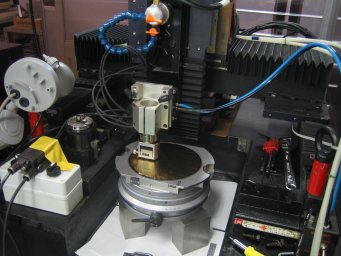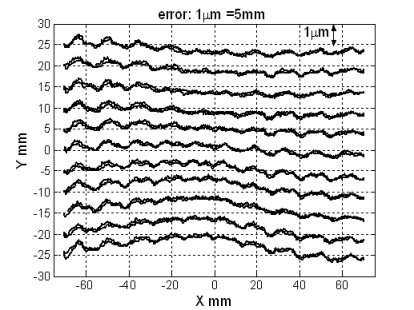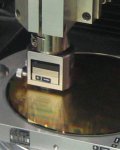|
|
|||||
| |||||
|
Just as general linear encoders, the cross grid encoder may have non-negligible measurement error caused mostly by the misalignment of grids. In the case of a general linear encoder, such a measurement error can be calibrated and then compensated by comparing with the reference encoder. For the cross grid encoder, since there is no reference two-dimensional encoder available, such calibration and compensation are very difficult. The objective of this research is to propose a self-calibration scheme of the cross grid encoder to calibrate its measurement accuracy over the entire region by only using the cross grid encoder itself and the machine to be measured, without using any reference. >> Publications: JJ10, CJ31, CJ27 
Figure 1: A cross grid encoder. KGM by Heidenhain was used in our experiments. 
Figure 2: An example of measurement results (not related to the machine in Fig. 1). By using the cross grid encoder, straightness errors are measured. For different Y positions, the machine is moved toward the X direction by 140 mm, and the error in the direction normal to the feed direction is magnified and plotted. By using the cross grid encoder, such an error map can be obtained relatively easily. It should be, however, noted that the measurement result also contains the measurement error of the cross grid encoder. In this figure, the straightness error seems to vary significantly for different Y positions. Is this the machine's error? Or it is attributable to the measurement error? | |||||
